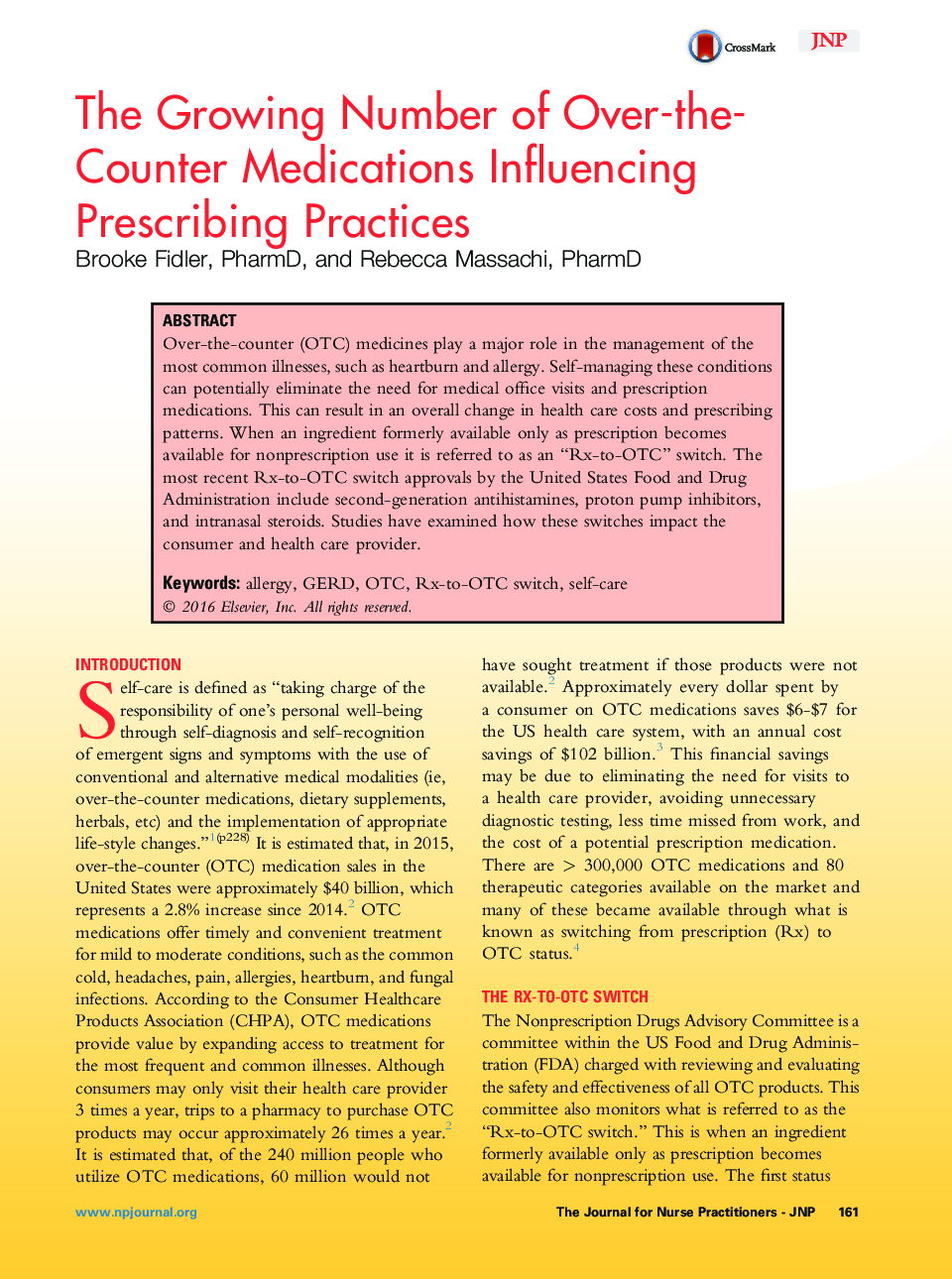| Article ID | Journal | Published Year | Pages | File Type |
|---|---|---|---|---|
| 2659739 | The Journal for Nurse Practitioners | 2016 | 5 Pages |
•OTC medicines offer convenient treatments for conditions that can be self-treated•Rx-to-OTC switches may have an effect on the utilization of provider services•Second generation antihistamines, PPIs and intranasal steroids are the most recent OTC switches•Many factors may influence prescribing patterns and consumer medication utilization
Over-the-counter (OTC) medicines play a major role in the management of the most common illnesses, such as heartburn and allergy. Self-managing these conditions can potentially eliminate the need for medical office visits and prescription medications. This can result in an overall change in health care costs and prescribing patterns. When an ingredient formerly available only as prescription becomes available for nonprescription use it is referred to as an “Rx-to-OTC” switch. The most recent Rx-to-OTC switch approvals by the United States Food and Drug Administration include second-generation antihistamines, proton pump inhibitors, and intranasal steroids. Studies have examined how these switches impact the consumer and health care provider.
